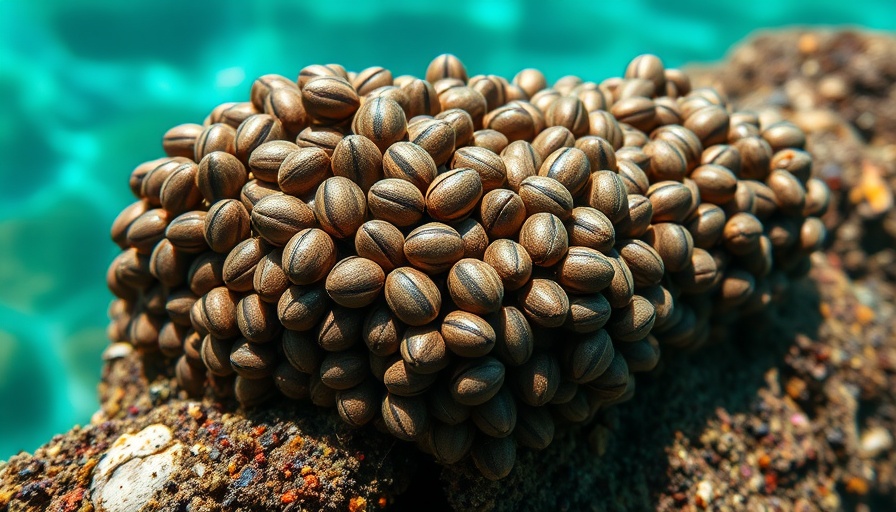
The Rising Threat of Invasive Zebra Mussels in Texas
In recent weeks, Texas Parks and Wildlife Department (TPWD) confirmed a worrying situation in Texas lakes: an infestation of invasive zebra mussels. This aquatic pest, native to the Caspian Sea, poses a significant threat not only to local ecosystems but also to water utilities, fishing industries, and recreational activities across the state.
Understanding the Zebra Mussel Invasion
Originally introduced to North America in the late 1980s, zebra mussels have rapidly spread across the contiguous U.S., finding a particular home in states like Texas. These small, fast-breeding bivalves reproduce at an alarming rate, sometimes producing over 30,000 eggs in a single spawning cycle. Their ability to reproduce quickly allows them to outcompete native species for food and habitat, destabilizing local ecosystems.
The Environmental Impact
Zebra mussels filter large volumes of water, which can lead to a decline in phytoplankton — the foundation of aquatic food webs. As these invasive species proliferate, they physically alter habitats and can cause a cascading effect throughout the local ecosystem, which affects fish populations and reduces the biodiversity crucial for maintaining ecological balance. Texas lakes, vital for both wildlife and human recreation, could face devastating long-term impacts if these mussels continue to spread.
Economic Ramifications for Texas
The economic implications of the zebra mussel infestation are significant. Lakes serve as critical resources for recreational fishing, boating, and tourism, all vital to local economies. As noted by TPWD officials, if zebra mussels establish themselves in water supply systems, they can cause severe damage to pumps and pipes, leading to costly repairs that taxpayers would ultimately bear.
Water utilities across Texas will need to implement preventive measures. According to experts, the costs for treatment and infrastructure modification to manage zebra mussel infestations can reach into the millions, straining public resources and potentially leading to increased water prices for consumers.
Preventive Measures and Public Awareness
In response to the growing problem, TPWD emphasizes the importance of public awareness to mitigate the spread of zebra mussels. They urge boaters, anglers, and water enthusiasts to clean their equipment thoroughly before moving from one body of water to another. Measures such as draining water from boats, cleaning trailers, and using hot water to wash gear can help reduce the transfer of these invasive pests.
Moreover, educational campaigns highlighting the risks associated with invasive species are critical. Individuals can play a vital role in protecting aquatic environments by being vigilant and adopting best practices when enjoying Texas lakes and waterways.
A Call to Action for Texans
As community members and stewards of Texas natural resources, we all have a role to play in combating invasive species. By sharing knowledge and taking action, we can collectively work towards preserving the rich biodiversity that defines our state's waters. Connecting with local environmental groups and participating in educational events can make a tangible difference in addressing this challenge.
Final Thoughts
The zebra mussel infestation in Texas is not just an ecological issue but a multifaceted challenge that affects economics, recreation, and environmental integrity. Awareness, action, and community involvement are essential to preventing the further spread of these invasive species and safeguarding the natural beauty and resources of Texas lakes for future generations.
 Add Element
Add Element  Add Row
Add Row 



Write A Comment